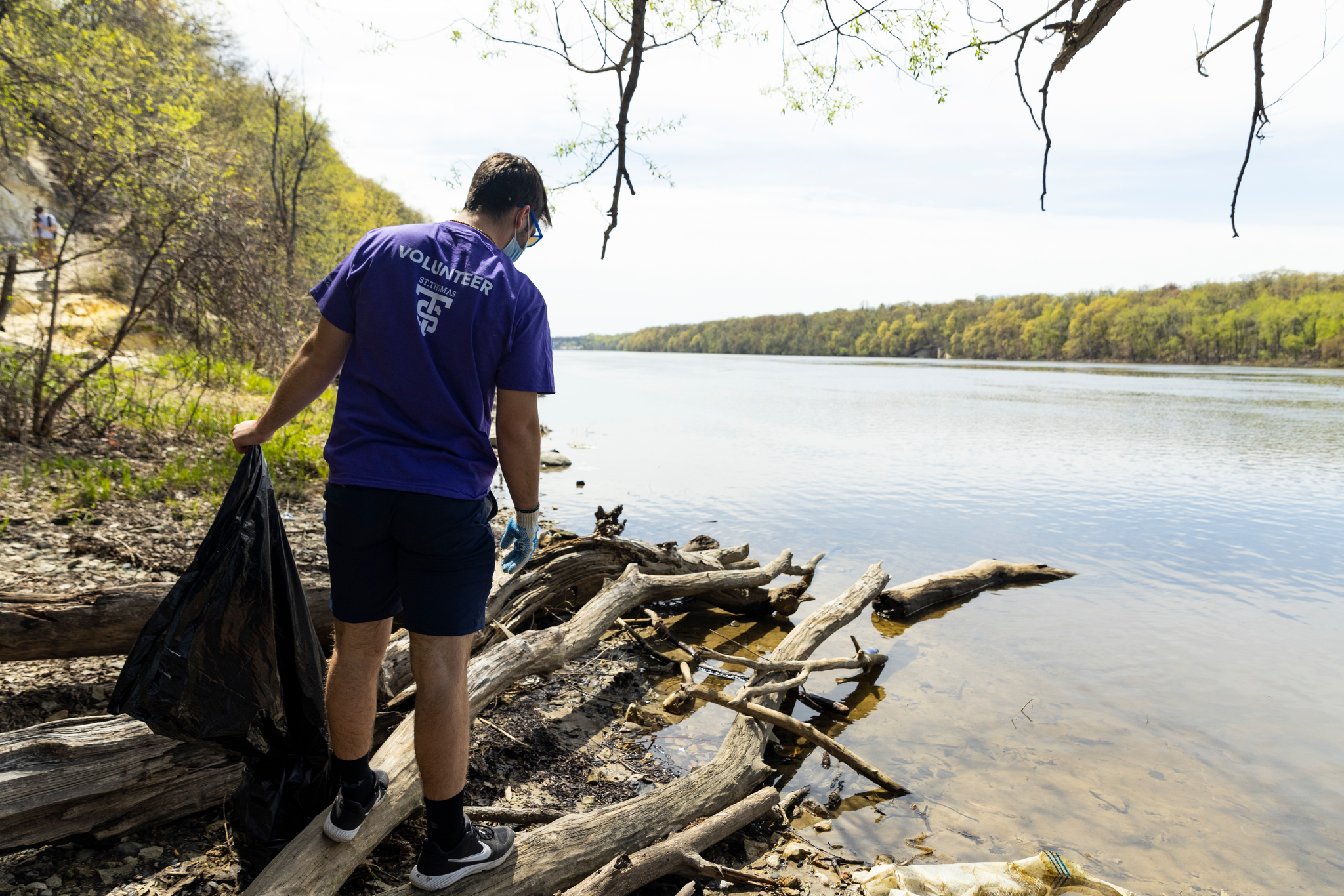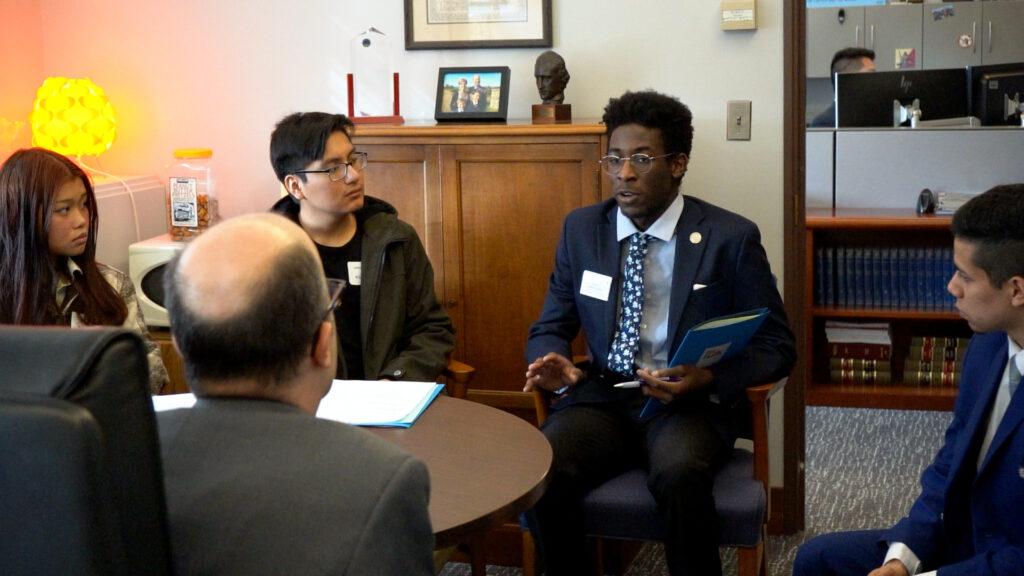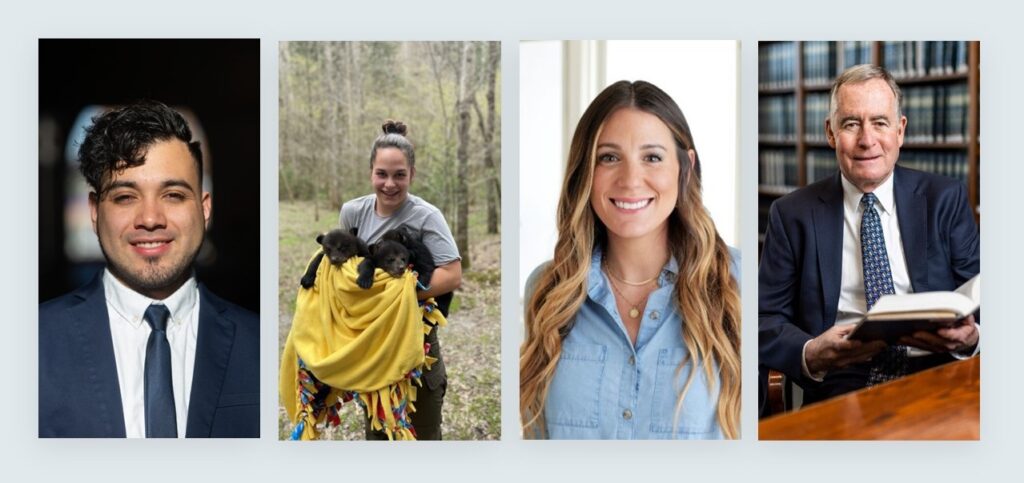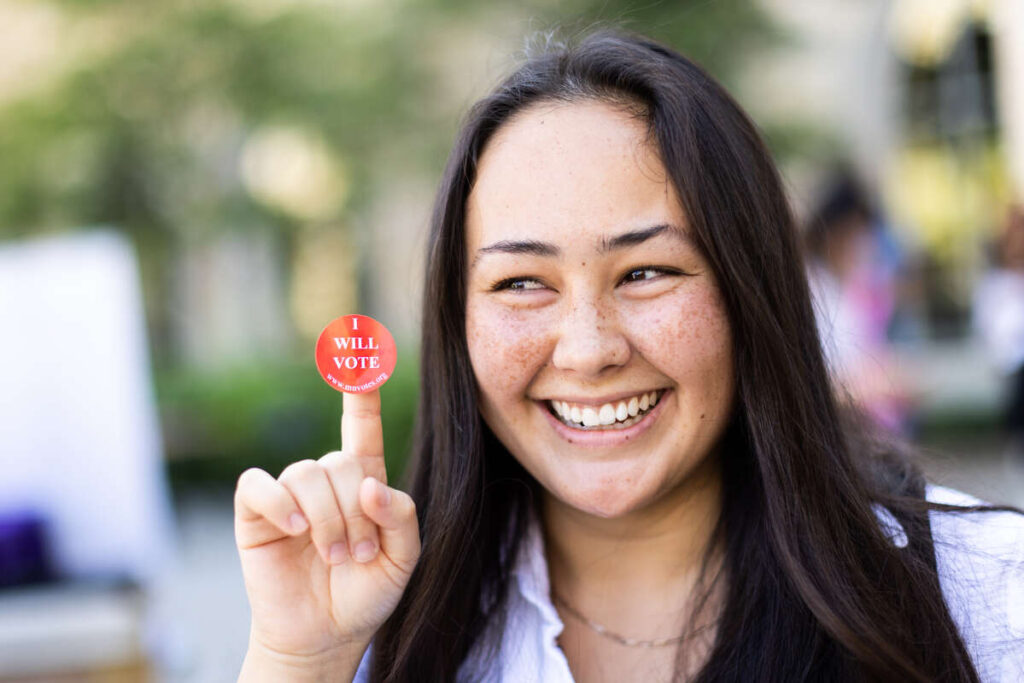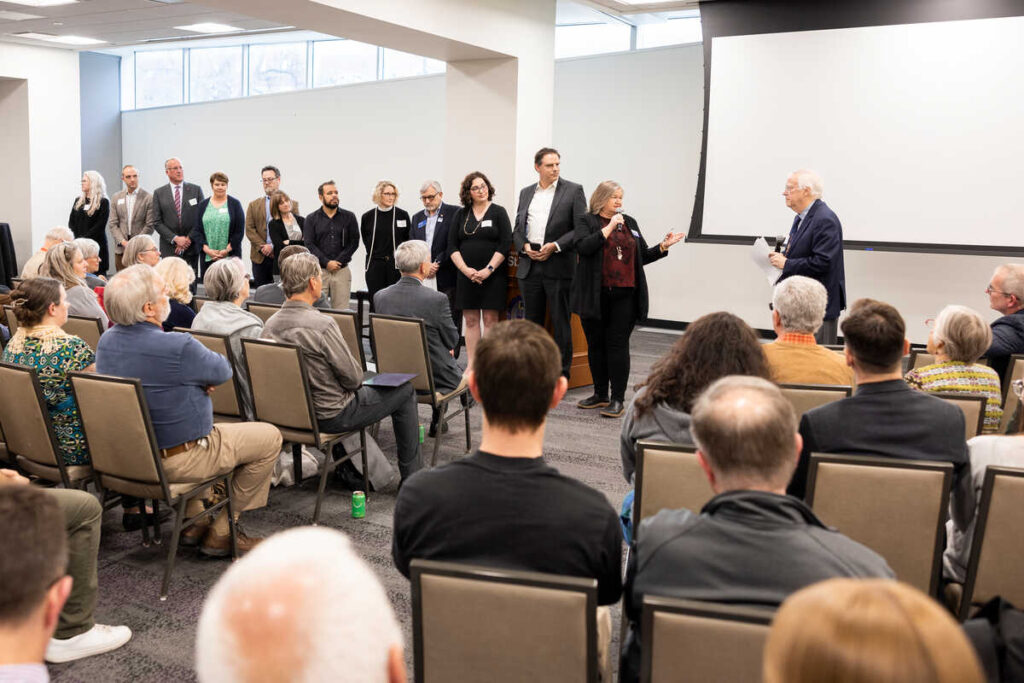Just one month into the fall semester, and Tommies already have contributed more than 10,000 hours of direct service in their communities. As part of the St. Thomas 2025 strategic plan, the university is aiming to achieve a goal of 125,000 hours in a year.
With our global community rocked by the coronavirus, a rising climate that threatens the health of the planet we call home, and an ongoing fight to end white supremacy in all of its shapes and sizes, it can be easy to feel hopeless. One looks at society’s ills on such a massive scale and asks, what can I possibly do? What can I possibly give? How can we possibly change? But, as Bryan Stevenson, human rights attorney and social justice advocate said, “… hopelessness is the enemy of justice.”
The volunteers, advocates and change agents of St. Thomas have chosen justice.
“If we start to understand that social change isn’t just one thing,” said Dustin Killpack, associate director of the Center for the Common Good, “if we recognize that true, lasting social change comes from every spoke of the Social Change Wheel moving together, then we start to see that we are just one part of a collective group of motivated human beings, each doing our part to advance the common good.”
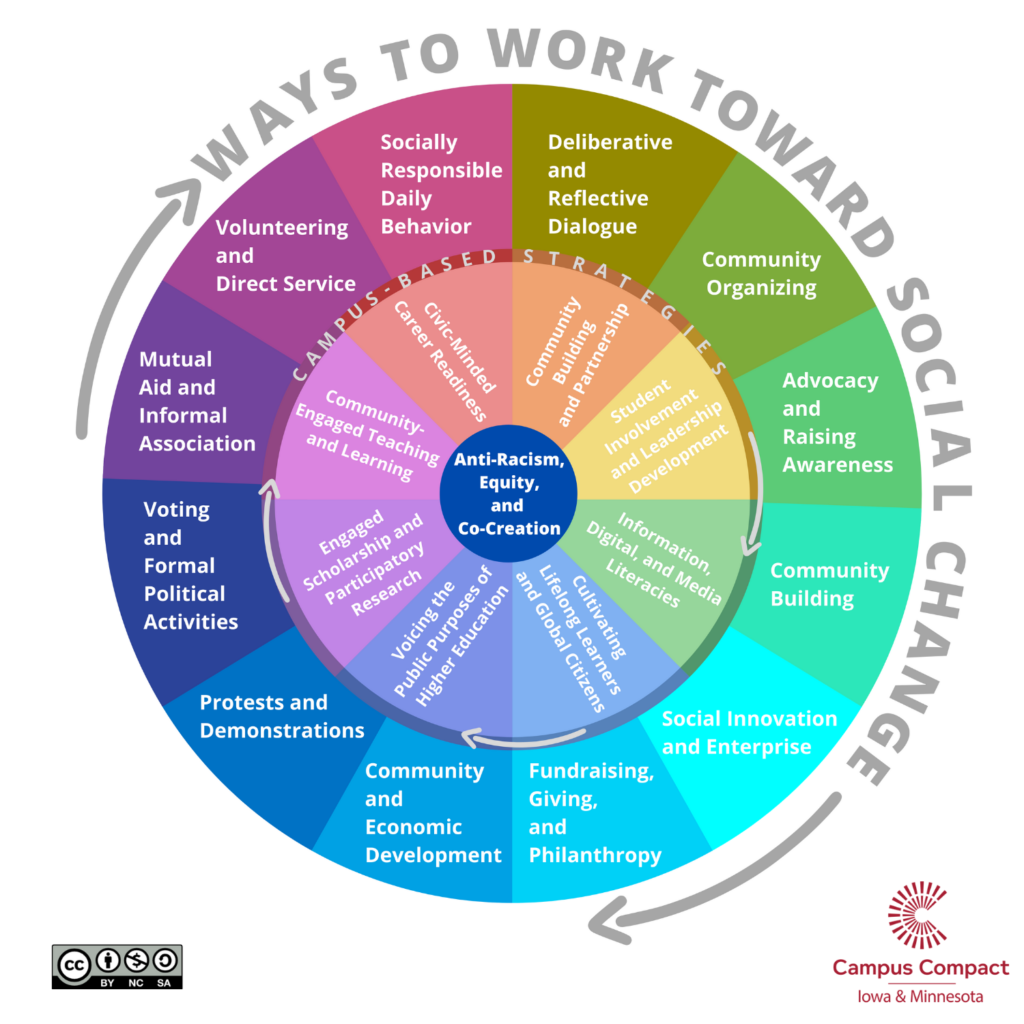
And the Social Change Wheel isn’t just a metaphor, though it works as a striking visual. Campus Compact’s Social Change Wheel is part of the theory that guides the work of the Center for the Common Good (CCG). The idea is simple enough – engage in whichever spoke speaks to you, as this is your entry point to action. From there, where you go and what role you find for yourself in shaping positive social change is up to you.
For many students at St. Thomas, the entry point is Volunteering and Direct Service, the spoke of the Social Change Wheel most heavily engaged by the CCG’s volunteerism arm, the Tommies Together Volunteer Center (TTVC).
“I started as a volunteer in my first year at St. Thomas with Tommie Shelf, and it all just grew from there,” said Jenna Novak ’22, student director of Tutor-Mentor, one of TTVC’s core cocurricular volunteer programs. “I had volunteered in high school, so getting involved as a volunteer on campus was an easy choice.”
But since starting her volunteer work with CCG and TTVC, Novak has started truing a few other spokes of the Social Change Wheel.
“Last academic year I hosted a panel with local folks who are involved in food justice work, and this year I got to host another panel that delved into the intersecting historical, structural and personal actions that have caused Minnesota to have the widest education opportunity gap between white students and Black, Indigenous and other students of color in the entire country,” said Novak. “It’s cool to be actively engaged in direct service while also being able to raise awareness among my peers.”
Milestone of 10,000 volunteer hours
Novak’s peers are listening and following suit. Just one month into the fall semester, and Tommies already have contributed more than 10,000 hours of direct service in their communities. As part of the St. Thomas 2025 strategic plan, the university is aiming to achieve a goal of 125,000 hours in a year.
Whether through TTVC’s core cocurricular volunteer programs Tutor-Mentor and Shelter Crew, through CCG’s Academic Community Engagement program (ACE), or through one of the many (and there are many) ways that students engage in their communities through academic and cocurricular programming, Tommies are rolling their sleeves up.
“Part of our work as a center,” said Killpack, “is to support the good work of our campus and community partners. In every corner of the university, whether Opus College of Business, Campus Ministry, student clubs, Dease Scholars, School of Law, Dougherty Family College, Aquinas Scholars or athletics – it’s almost impossible to find a group that isn’t out there doing excellent work in the community. It’s our job to support their work and to get out of their way.”
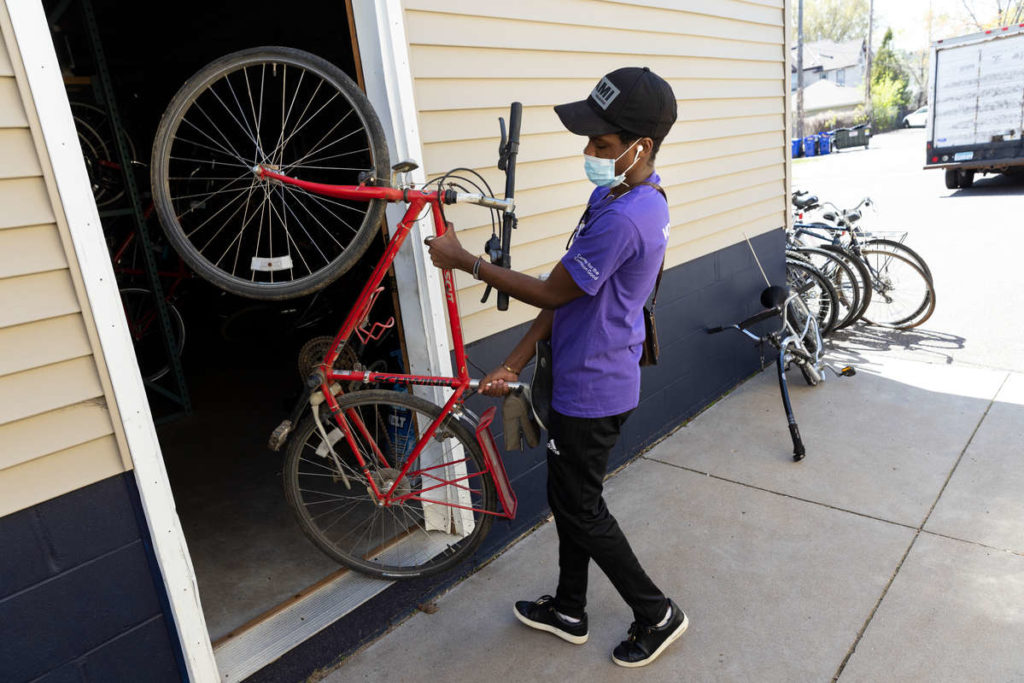
One of the programs Killpack referenced is Business 200, a core course for business majors at St. Thomas run by Director of Business Learning Through Service Julie Reiter in the Opus College of Business. Students in Business 200 volunteer 40 hours apiece each semester, averaging more than 25,000 volunteer hours annually, and have been doing so since the program’s inception in 1991.
“We see students come through Business 200 with a wide variety of volunteer experience – some are stepping out into the community for the first time, while others have grown up with volunteerism as a core value,” said Reiter. “Whatever their starting point, over the course of a term, we see them grow into more socially conscious people. It’s really inspiring to watch students go from apprehensively engaging with their community to finding their voice and their role as future business leaders in advancing the common good.”
One such student for whom community engagement has been a path to leadership is Noah Steward ‘22, Business 200 peer facilitator and VISION program director. Steward always has been passionate about community engagement, having learned the inherent value of service from his family. But attending a VISION meditation through Campus Ministry as a first-year student and learning about this global engagement program was his entry point into a college experience dedicated to community. Steward goes as far as to say that these programs, and the promotion of social justice through community engagement has become “pretty central to [his] identity.”
Steward is quick to recognize that engaging in community has made him a better leader. “Stepping outside of your comfort zone is a significant part of finding out who you are, and knowing yourself is the key to knowing others,” he said. “If you can understand yourself better, you can better understand others, which helps you to flourish as a leader.”
For the many students who see Steward and Novak as exemplars, donating to one’s local food pantry, volunteering at a neighborhood shelter, or attending a district council meeting might feel like a small step in the slow march toward justice and peace. But for thousands of Tommies, that first step, no matter how small, is the most important, as that first step leads to a second, and soon one finds themselves with their hands firmly situated on the Social Change Wheel, helping a global community of citizens steer us toward a better world.
If you would like to get involved in volunteerism through the TTVC or are curious about how you can get involved in other spokes of the Social Change Wheel, email commongood@stthomas.edu.
If you are already doing work in the community, please log your volunteer hours on Tommie Link and/or email commongood@stthomas.edu to find out how the Center for the Common Good might be able to support your work.
Casey Gordon is senior program manager of the Center for the Common Good.
